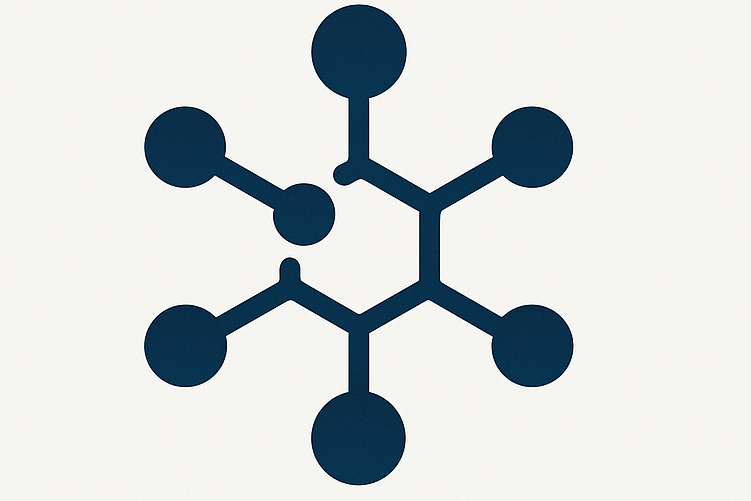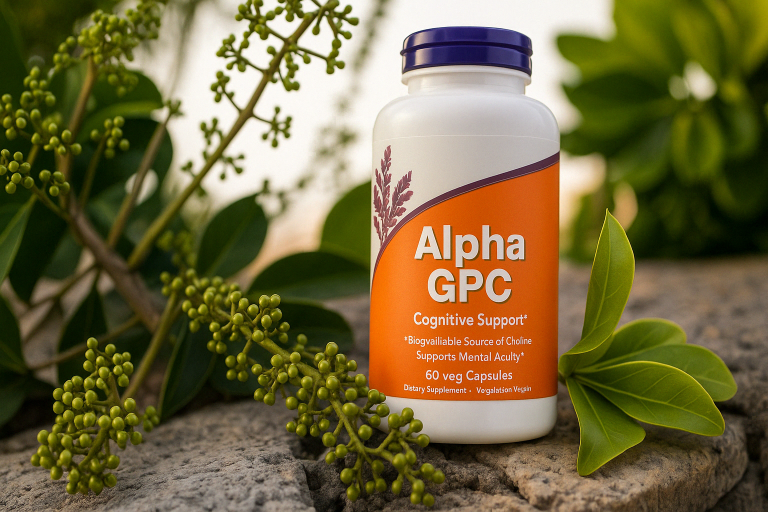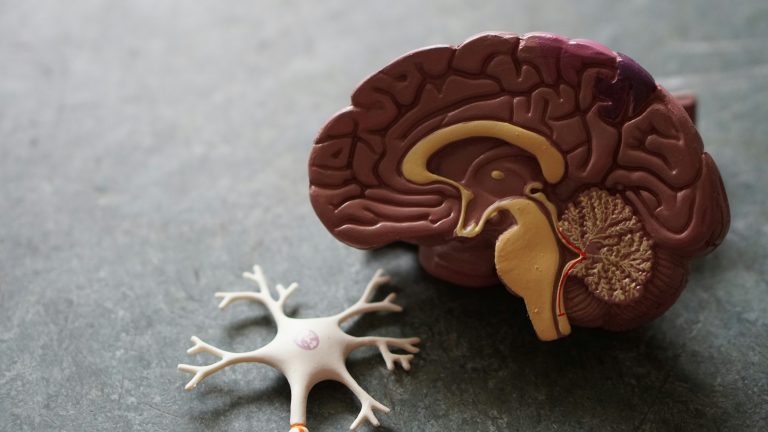How to Improve Brain Function Naturally: Tips for Enhanced Cognitive Health
Boosting brain function naturally is both achievable and rewarding.
Engaging in regular physical exercise and mental stimulation plays a crucial role in keeping the mind sharp.
Exercise not only improves physical health but also enhances cognitive function, reducing the risk of cognitive decline.

A balanced diet is another key factor.
Foods rich in antioxidants, vitamins, and omega-3 fatty acids can support brain health and protect against age-related decline.
Reducing processed foods and sugars may also have positive effects on cognitive performance.
Adequate sleep and stress management are essential for maintaining optimal brain function.
Quality sleep helps consolidate memories and rejuvenates the mind, while managing stress can improve mood and cognitive abilities.
By focusing on these holistic approaches, individuals can naturally enhance their brain’s capabilities and enjoy a healthier, more resilient mind.
Understanding Brain Health

A strong grasp of brain health involves examining how aging affects cognitive abilities and recognizing disorders that can arise. By doing this, individuals can take proactive steps to maintain and improve their brain function.
The Impact of Aging on Cognitive Function
As people age, natural changes in brain structure and chemistry can occur. This may lead to mild cognitive impairment or sometimes more significant issues, such as dementia.
Brain cells can shrink or lose connections, impacting learning, memory, and problem-solving skills. Regular mental activity and physical exercise can help slow these changes, promoting mental sharpness.
Maintaining a healthy lifestyle is crucial.
A diet rich in nutrients supports brain health, while activities that keep the mind engaged can help preserve cognitive function.
Social interactions also play a role, further stimulating the brain and helping to maintain a good mood. Understanding these factors helps individuals better navigate the aging process.
Common Brain-Related Disorders
Brain-related disorders affect many people, especially as they grow older. Alzheimer’s disease is one of the most common forms of dementia, marked by memory loss and confusion. Early signs may include difficulty remembering names or recent events. Identifying these signs is important for managing the condition.
Another concern is mild cognitive impairment, which can sometimes progress to dementia. Though it’s not as severe as dementia, it still affects memory and thinking skills.
Diagnosing these disorders early offers the best chance for effective intervention. Engaging in regular physical and mental exercises can be key strategies in managing these conditions, helping reduce their impact on daily life.
The Role of Diet in Brain Function

A healthy diet plays a vital role in maintaining and improving brain function. Certain nutrients and foods can enhance cognitive health, protect against aging, and improve overall mental performance.
Key Nutrients for Cognitive Health
Key nutrients such as omega-3 fatty acids, folate, and antioxidants contribute significantly to brain health.
Omega-3s, found in fatty fish like salmon and tuna, support cognitive processes. Folate, present in leafy greens, aids in brain function. Antioxidants, including vitamin E and flavanols, protect against oxidative stress.
Minerals like magnesium and zinc are essential for neural activity. Foods such as walnuts and avocados provide beneficial fats that support brain function.
Brain-Healthy Foods to Include
Eating a variety of brain-healthy foods can enhance cognitive performance.
Fatty fish, including tuna and salmon, are rich in omega-3 fatty acids.
Blueberries and other berries contain antioxidants that improve memory over time.
Leafy greens like spinach provide essential vitamins and minerals.
Nuts, specifically walnuts, offer good fats and antioxidants.
Whole grains, such as oats and brown rice, provide energy for the brain.
Beans and legumes are excellent plant-based protein sources that support overall brain health.
Dietary Patterns for Brain Health
Following specific dietary patterns can promote long-term cognitive well-being.
The Mediterranean diet, which emphasizes fruits, vegetables, whole grains, and lean proteins such as fish and beans, has been linked to better brain health. Its focus on olive oil and nuts provides essential fatty acids that support neural function.
The MIND diet, a combination of the Mediterranean and DASH diets, highlights foods beneficial for the brain while minimizing those harmful to cognitive health. It encourages regular consumption of berries and leafy greens. This thoughtful approach to eating can help protect against cognitive decline.
Lifestyle Factors Affecting Cognitive Health
Cognitive health is influenced by various lifestyle factors. Regular exercise, stress management, and sufficient sleep play a crucial role in enhancing brain function, memory, and mental focus.
Exercise and Physical Activity
Engaging in regular exercise can significantly benefit brain health.
Activities such as walking, cycling, or swimming increase blood flow to the brain, which can help reduce inflammation and support memory function. Exercise has been linked to improved concentration and mental focus, making it a vital part of a healthy lifestyle.
According to the Mayo Clinic, regular physical activity promotes brain health and can lower the risk of cognitive decline.
It’s important to find a type of exercise that is enjoyable and sustainable, aiming for at least 150 minutes of moderate aerobic activity per week.
Managing Stress for Better Brain Function
Chronic stress negatively impacts the brain, affecting memory and concentration.
Techniques like mindfulness, meditation, and deep-breathing exercises can help alleviate stress. These practices help regulate emotions and reduce inflammation, promoting better cognitive health.
By incorporating stress-reducing activities into daily routines, individuals can improve mental clarity and emotional well-being.
By managing stress, people can maintain better focus and reduce the risk of memory loss. The Alzheimer’s Association highlights the importance of stress management for maintaining brain health. It is essential to identify stressors and develop a plan to address them effectively.
Importance of Sleep for Cognitive Function
Sleep is essential for restoring and rejuvenating the brain.
Poor sleep quality affects mental focus, memory consolidation, and cognitive function. Studies show that adults need 7 to 9 hours of quality sleep each night to maintain optimal brain health.
Practicing good sleep hygiene, such as having a consistent bedtime routine, limiting screen time before bed, and creating a comfortable sleep environment, can help improve sleep quality.
According to Harvard Health, sleep helps to keep the brain young and functioning effectively.
Prioritizing sleep is crucial for maintaining overall cognitive health and reducing the risk of cognitive decline.
Natural Supplements and Herbs
Natural supplements and herbs offer a promising way to support brain function. Omega-3 fatty acids and herbal teas are popular options that contribute to cognitive health and mental clarity.
Benefits of Omega-3 Supplements
Omega-3 fatty acids, found in fish oils, play a significant role in brain health.
One type, docosahexaenoic acid (DHA), is crucial for brain structure and performance. Regular intake of omega-3 supplements may enhance memory and improve mood.
These healthy fats help reduce inflammation, which can positively affect overall brain function.
Some studies suggest that omega-3s might also help slow down age-related mental decline. While they are most commonly sourced from fish oil, vegetarian options like algae oil provide similar benefits without fish-related allergens.
Opting for omega-3 supplements is a simple, natural way to aid cognitive health.
Herbal Teas and Cognition
Herbal teas, such as those containing ginseng and ashwagandha, are known for boosting energy and mental alertness.
Ginseng has been studied for improving focus and mood, which can make daily tasks easier. Ashwagandha is believed to reduce stress and anxiety, offering a calmer mind for better learning and memory retention.
Flavonoids in herbal teas, such as those derived from camellia sinensis leaves, support cognitive function by promoting blood flow to the brain. This improved circulation may enhance concentration and reaction time.
Including these herbal teas in a daily routine can be a refreshing way to support mental clarity and health.
Mental Exercises and Cognitive Stimulation
Engaging in mental exercises and stimulation can boost cognitive function and enhance memory. Activities such as brain games and learning new skills are effective methods to naturally improve brain performance.
Brain Training Games and Puzzles
Brain training games and puzzles enhance memory function and stimulate cognitive abilities. These include crosswords, Sudoku, and memory card games.
Solving puzzles can increase dopamine levels, improving mood and motivation. These games challenge the brain, keeping it active and healthy.
Certain apps offer a variety of puzzles and games, adjusting difficulty levels as users improve. Regularly incorporating these activities into everyday routines can aid in sustaining focus and combating cognitive decline 13 Brain Exercises.
Learning New Skills and Hobbies
Learning new skills or hobbies is a powerful way to stimulate the brain.
Activities such as learning a musical instrument, cooking new recipes, or picking up a new language can enhance cognitive function. These challenges prompt the creation of new neural connections.
Additionally, engaging in these activities can improve memory function and increase dopamine, making them rewarding.
Pursuing hobbies requires focus and enhances problem-solving skills. Integrating a variety of hobbies into everyday life encourages continuous brain growth and adaptation 12 ways to keep your brain young.
Creating a Brain-Enhancing Environment
Creating an environment that supports brain health involves optimizing living spaces and staying socially engaged. These changes can improve mental focus, boost concentration, and provide intellectual stimulation.
Optimizing Your Living Space
An organized living space can significantly affect mental focus and concentration.
Keeping your surroundings clutter-free reduces stress and improves cognitive abilities. Ensuring adequate natural light helps regulate sleep patterns and maintain dopamine levels.
Incorporate plants to boost mood and improve air quality. Studies suggest that greenery enhances focus and productivity. Additionally, consider a designated quiet area for relaxation.
Incorporating calming colors like blue or green in your decor can further enhance concentration. Setting up ergonomic furniture ensures you remain comfortable while studying or working, minimizing distractions.
Social Engagement and Intellectual Stimulation
Interacting with others is essential for brain health.
Socializing reduces stress and provides opportunities for learning. Engaging in conversation stimulates dopamine production, improving mood and focus.
Participating in group activities such as book clubs or games enhances cognitive agility. Being part of a community group can foster intellectual growth through shared knowledge.
Regularly attending classes or seminars expands knowledge and stimulates the brain. Exploring new hobbies keeps the mind active and challenges existing skills. New experiences can thus lead to improved cognition and a sharper brain function.
Preventive Measures and Risk Reduction
Improving brain function naturally involves preventing harm and reducing risks that can lead to cognitive decline. Reducing exposure to harmful substances and adjusting dietary habits play crucial roles in maintaining brain health and minimizing the risks associated with conditions like Alzheimer’s disease and inflammation.
Reducing Exposure to Toxins and Pollutants
Exposure to toxins and pollutants can impact brain health.
Chemicals found in air pollution, such as heavy metals, have been linked to cognitive decline. It is important to limit exposure to these substances by using air purifiers indoors and avoiding areas with high pollution levels.
Additionally, opting for natural cleaning products and avoiding pesticides in foods where possible can help.
Household dust can also carry toxins. Regular cleaning and using a vacuum with a HEPA filter can reduce harmful particles. In water, contaminants should be filtered out, especially heavy metals like lead or mercury.
These actions can support brain health and potentially reduce the risk of cognitive impairments.
Limiting Intake of Saturated Fats and Sugars
Diets high in saturated fats and sugars are associated with increased inflammation and the development of Alzheimer’s disease.
Saturated fats are often found in foods like fatty meats, butter, and cheese. Reducing intake of these foods and choosing lean proteins and healthy fats instead can benefit brain health.
Sugars, especially added sugars, should be limited. A diet high in sugar can increase inflammatory markers.
Opting for fruits and vegetables as natural alternatives provides the brain with essential nutrients without harmful effects. This dietary approach helps in managing inflammation and maintaining cognitive function effectively.






